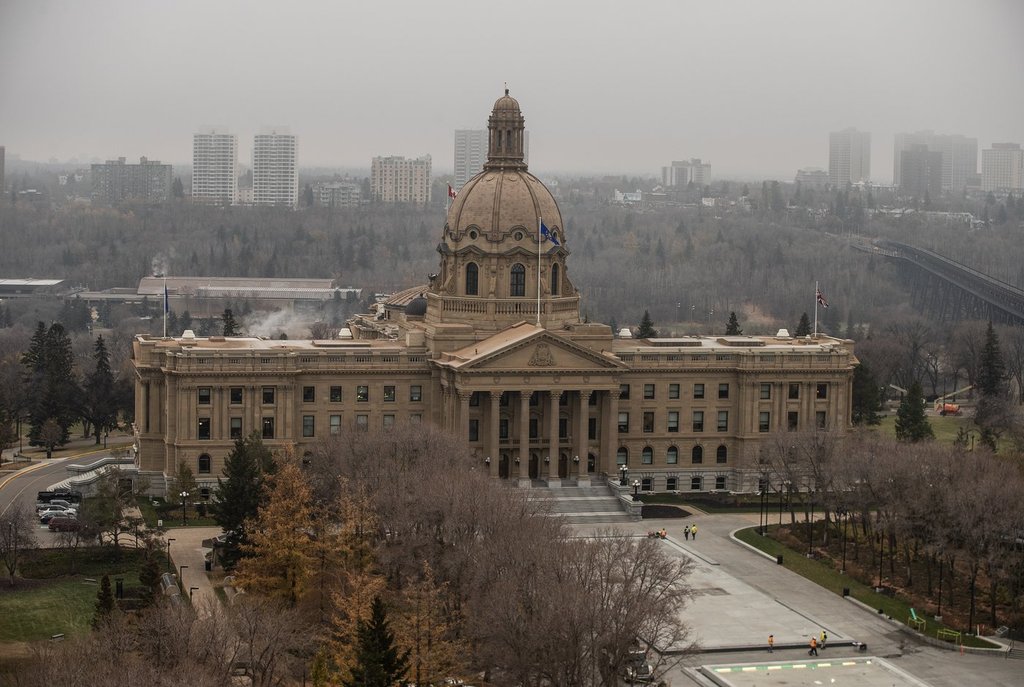Lifestyle
Alberta Government Invokes Notwithstanding Clause on Transgender Laws

The government of Alberta has taken a significant step by invoking the Charter’s notwithstanding clause to shield three specific laws regarding transgender and gender-diverse individuals from potential legal challenges. This move aims to solidify the legal standing of these laws, which impact both youth and adults within the transgender community.
Legislation Details and Implications
On October 4, 2023, Alberta’s government introduced the legislation as part of its broader strategy to address issues surrounding transgender rights and protections. By employing the notwithstanding clause, the government seeks to preemptively counter any judicial reviews or legal challenges that could arise against these laws.
The three laws in question focus on various aspects of rights and protections for transgender and gender-diverse individuals, addressing issues such as healthcare access, education, and discrimination. The invocation of the notwithstanding clause permits these laws to stand despite potential conflicts with the Canadian Charter of Rights and Freedoms, which grants individuals certain fundamental rights and freedoms.
This legislative measure has sparked a passionate debate across the province and beyond, with advocates and opponents voicing strong opinions on its implications for human rights. Supporters argue that the laws provide necessary protections for vulnerable communities, while critics contend that the use of the notwithstanding clause undermines the principles of equality and justice.
Responses from Stakeholders
Advocacy groups have expressed concern over the potential impact of these laws on transgender and gender-diverse youth. Organizations such as Trans Equality Canada have raised alarms about the long-term effects on mental health and well-being for individuals affected by these legislative changes. In a statement, they emphasized the importance of safeguarding the rights of all individuals, regardless of gender identity.
Conversely, government officials, including Alberta’s Minister of Justice, defended the legislation, asserting that it creates a framework that prioritizes the safety and well-being of all Albertans. They argue that the laws are designed to foster an inclusive environment while addressing concerns that have been raised regarding gender identity and expression.
The controversy surrounding the invocation of the notwithstanding clause reflects broader societal debates about the rights of transgender individuals. As the legal landscape continues to evolve, many are closely monitoring the situation to understand how it will affect the lives of those within the transgender community.
As discussions unfold, Alberta’s decision may set a precedent for other regions contemplating similar measures regarding transgender rights and the use of the notwithstanding clause. The implications of this legislation could resonate beyond provincial borders, influencing national conversations about equality and human rights.
The Alberta government’s actions represent a pivotal moment in the ongoing dialogue surrounding gender identity and rights in Canada. As stakeholders continue to assess the impact of these laws, the focus remains on ensuring that the rights and dignity of all individuals are upheld.
-

 Science3 months ago
Science3 months agoToyoake City Proposes Daily Two-Hour Smartphone Use Limit
-

 Top Stories3 months ago
Top Stories3 months agoPedestrian Fatally Injured in Esquimalt Collision on August 14
-

 Health3 months ago
Health3 months agoB.C. Review Reveals Urgent Need for Rare-Disease Drug Reforms
-

 Technology3 months ago
Technology3 months agoDark Adventure Game “Bye Sweet Carole” Set for October Release
-

 World3 months ago
World3 months agoJimmy Lai’s Defense Challenges Charges Under National Security Law
-

 Lifestyle3 months ago
Lifestyle3 months agoVictoria’s Pop-Up Shop Shines Light on B.C.’s Wolf Cull
-

 Technology3 months ago
Technology3 months agoKonami Revives Iconic Metal Gear Solid Delta Ahead of Release
-

 Technology3 months ago
Technology3 months agoApple Expands Self-Service Repair Program to Canada
-

 Technology3 months ago
Technology3 months agoSnapmaker U1 Color 3D Printer Redefines Speed and Sustainability
-

 Technology3 months ago
Technology3 months agoAION Folding Knife: Redefining EDC Design with Premium Materials
-

 Business3 months ago
Business3 months agoGordon Murray Automotive Unveils S1 LM and Le Mans GTR at Monterey
-

 Technology3 months ago
Technology3 months agoSolve Today’s Wordle Challenge: Hints and Answer for August 19









